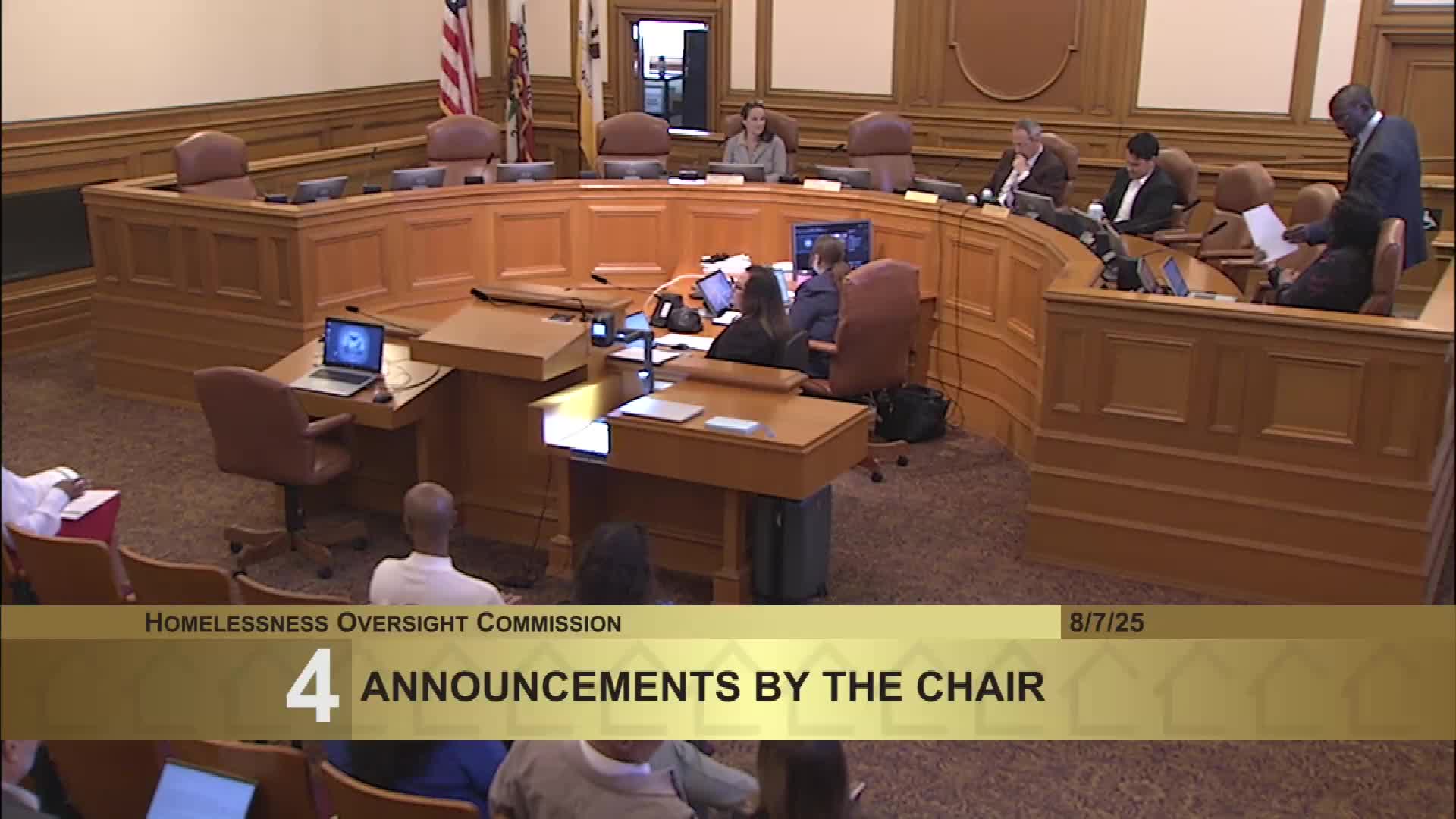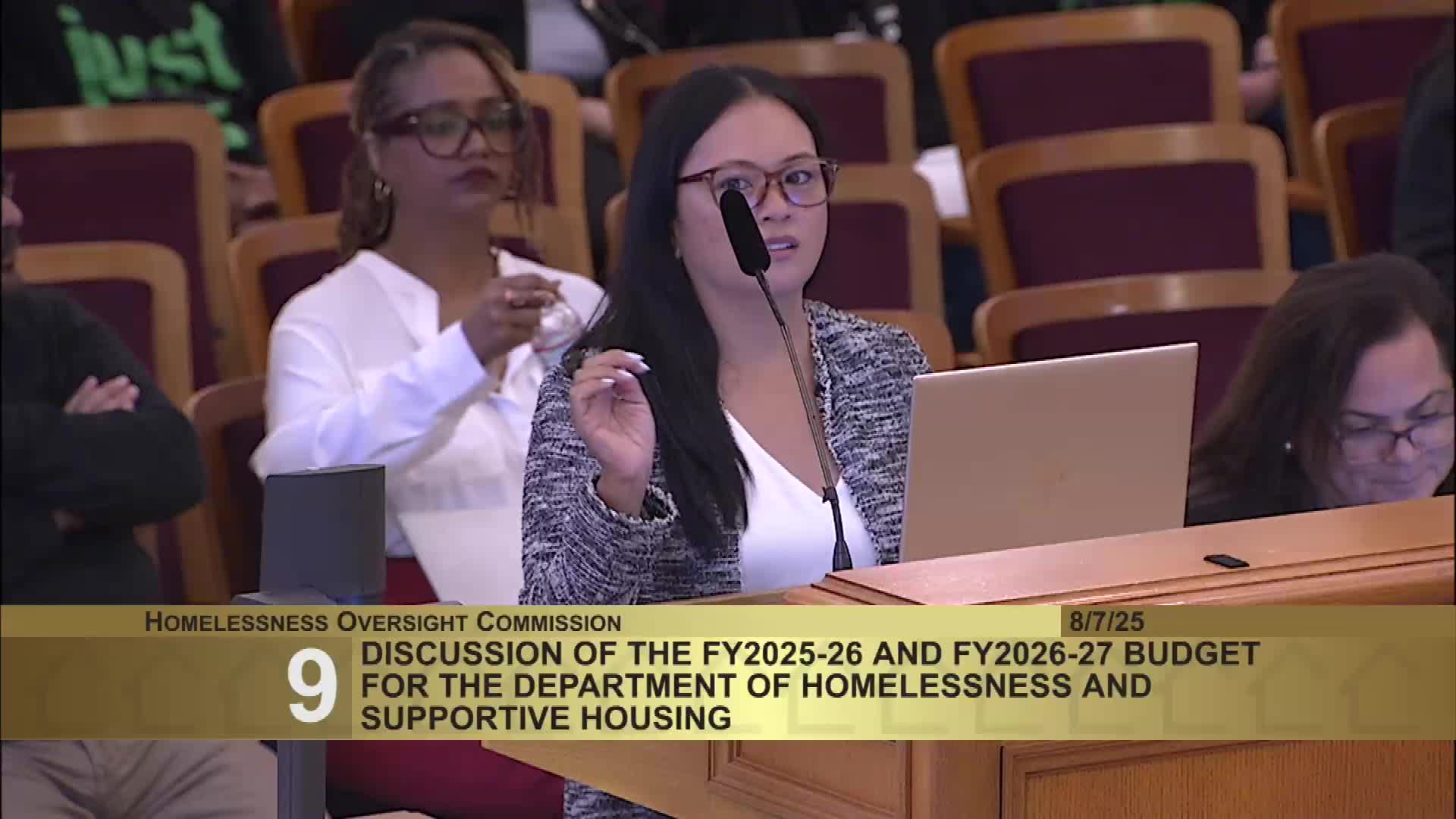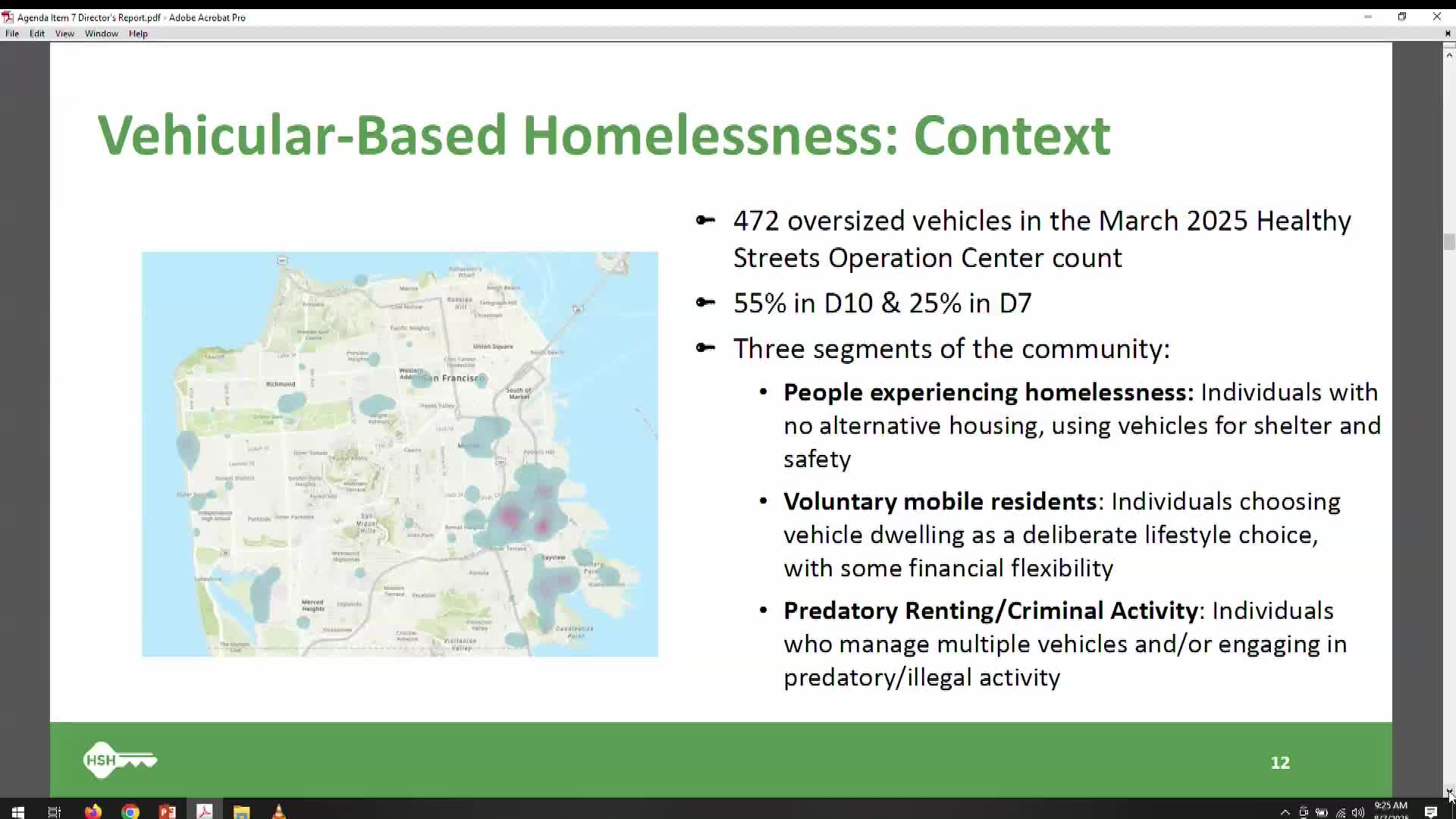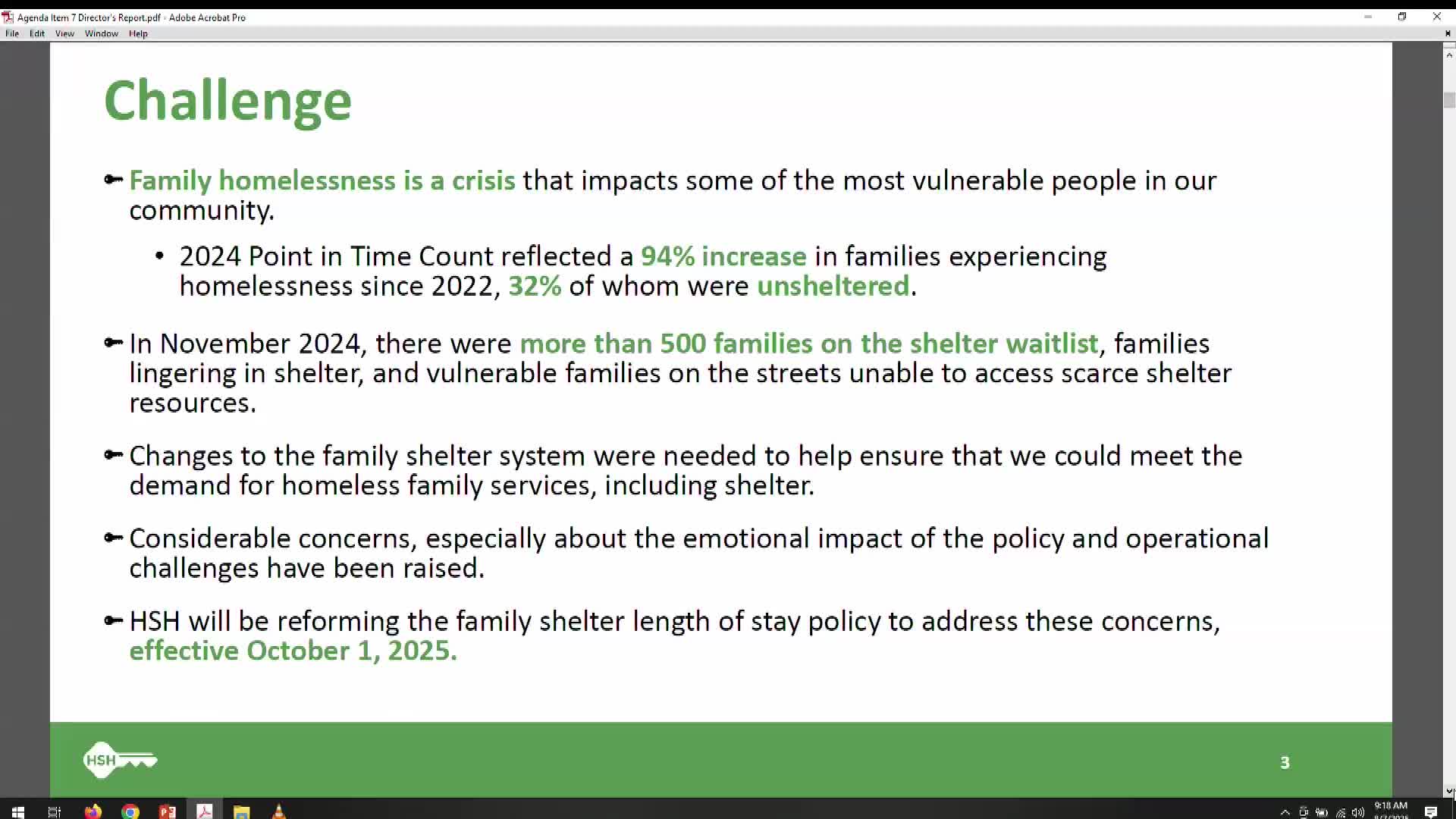Article not found
This article is no longer available. But don't worry—we've gathered other articles that discuss the same topic.

Commission approves minutes, contract amendments and two youth housing grants; appoints shelter committee members

HSH presents adopted FY25-26 budget and HAP-6 priorities; city reallocates $34.7M to shelter and interim housing

San Francisco rolls out large-vehicle strategy: outreach, permits and vehicle buyback to address rising vehicular homelessness

